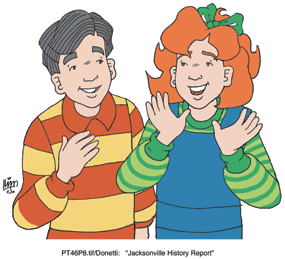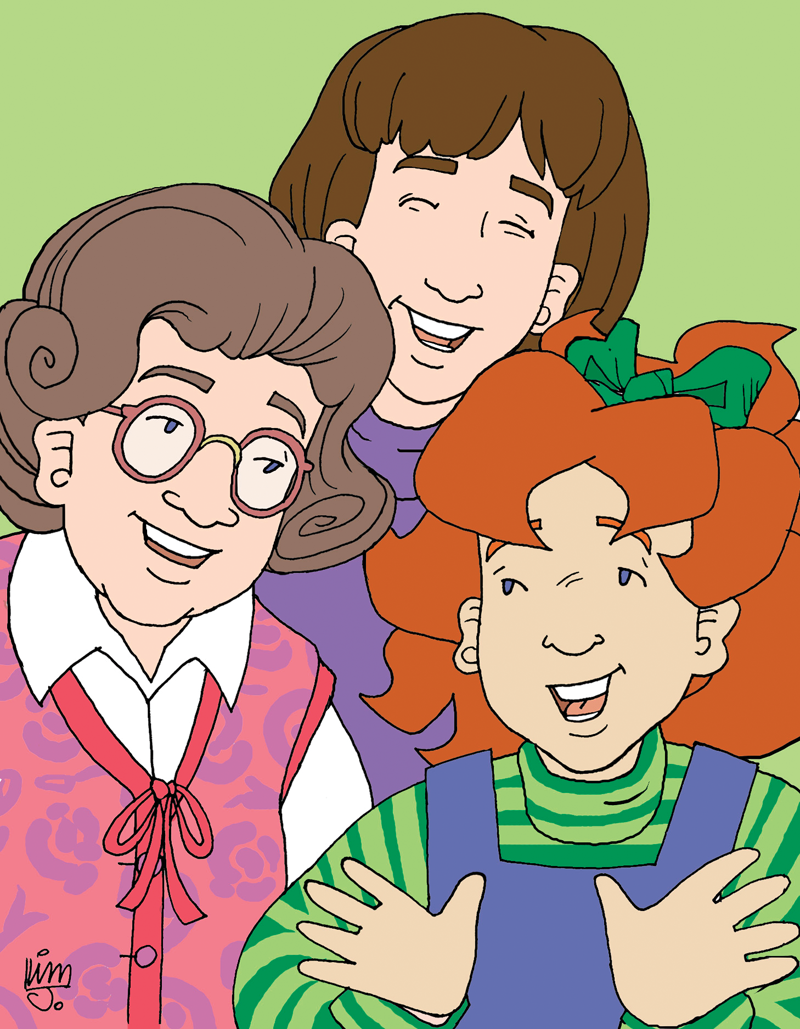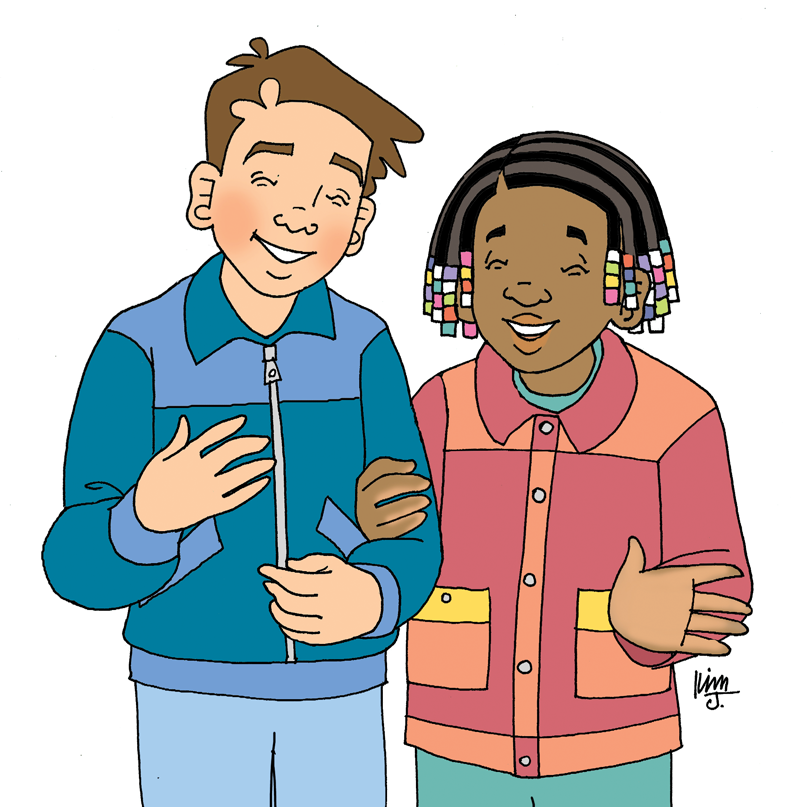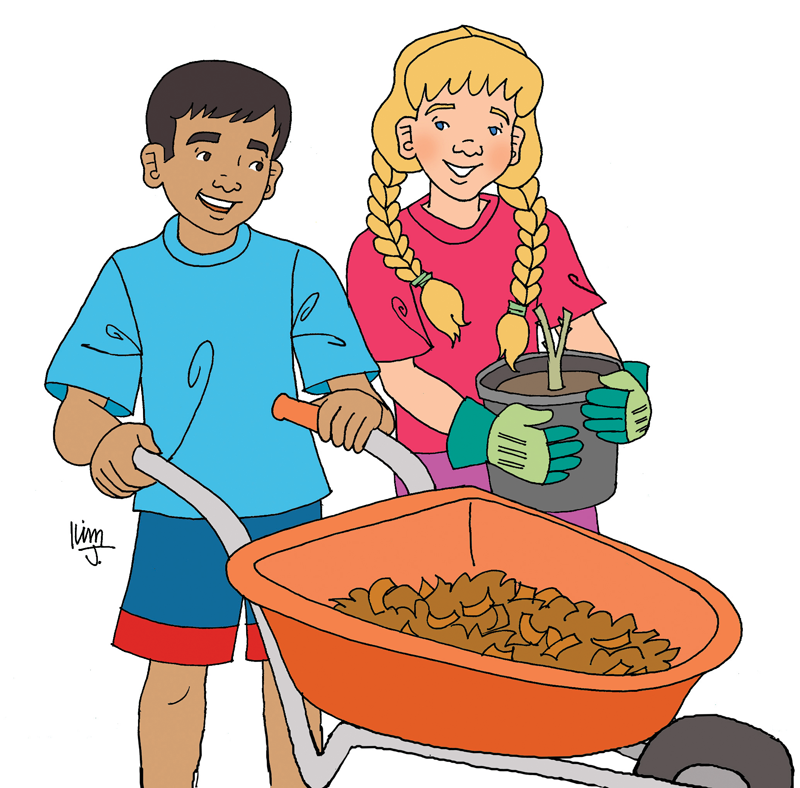
By Linda Porter Carlyle
Joseph Anderson Donetti frowned. “I don’t really like writing reports,” he reminded G.M.
“That’s too bad,” G.M. said. “But there’s always hope. Maybe you’ll like writing reports better after you do this one.”
Joseph sighed. It never did any good to argue with G.M. She never changed her mind.
“Jacksonville is a perfect topic for a report,” G.M. said after a moment. “You know so much about Jacksonville history already. Think of all you’ve learned since you started volunteering at Beekman House. All you’ll have to do is organize your information and your thoughts and write them down.”
“That’s the part I don’t like very well,” Joseph said. “The writing-it-down part. Maybe I could just organize my information and my thoughts and tell them to you,” he suggested hopefully.
“That’s a great idea!” G.M. exclaimed. “You could do both—a written report and an oral report. I wonder why I didn’t think of that myself.”
Joseph sighed. It never did any good to argue with G.M. “Maybe Mac will help me,” he mumbled.
“You can always ask her,” G.M. said, looking out the kitchen window. “She’s going to hit the back porch in about half a minute.”
Joseph jerked the kitchen door open. Mac leaped up the steps and landed with a thud in front of him. “I have to write a report about Jacksonville,” he said dismally.
“Ha!” Mac exclaimed. “So do I! My teacher said I have to write a report because I have missed school time for my Beekman House volunteer training. But I don’t really care though,” she went on. “I’d rather miss school and then write a report. I love being a volunteer! Don’t you think it’s more fun to work at Beekman House than to sit in school all day? I guess you don’t sit in school all day anyway,” she said. “You’re lucky!”
“I know,” Joseph said. “I like being homeschooled. But it’s not getting me out of writing a report.”
“Do you want some tea?” G.M. asked. “I have Lemon Zinger, Mac.” She filled the pretty dark blue teapot with water.
“Yes, please! I love Lemon Zinger tea!” Mac said.
“Do you have peppermint?” Joseph asked.
“I always have peppermint,” G.M. assured him. She put the teakettle on the stove and turned the burner on. “Let’s talk about your reports,” she said. “Tell me everything you guys already know about Jacksonville.”
“We know a lot!” Mac said. “I know! We can take turns. I’ll tell one thing, and then Joseph can tell one thing. I’ll go first. I know that about 100 years ago, in 1899, there were only four people in Jacksonville who had telephones.” She looked at Joseph. “It’s your turn.”
“Gold was discovered in Jacksonville about 150 years ago,” Joseph said. “That’s why there is a town here. People came to look for gold. They built houses and stores and a town sort of grew up.”
“It only cost two cents to mail a letter in 1911,” Mac said. “It costs a lot more than that now! My dad always complains at Christmas time about how much money my mom has to spend on stamps for the Christmas cards.”
“People only earned two or three dollars then for working all day,” Joseph added. “People make more money than that now, don’t they?” he asked.
G.M. smiled. “Yes. People make more than that now for working only one hour. But things cost more too.”
“They had nice stuff in those days,” Mac said. “The furniture in Beekman House is nicer than our furniture! And the hairbrushes and mirrors and dishes and silverware are all fancier than ours at home.” Mac took a tiny breath, but no one could interrupt before she talked some more.
“Do you know what?” she asked G.M. “We had to learn what to do if somebody steals something from Beekman House! They call all the stuff in Beekman House artifacts. It’s what you call old things that are kept in a museum. Artifacts. And if we see somebody touch an artifact at Beekman House, we’re not supposed to call them a thief or anything. We’re supposed to ask them very politely to put it back. And if we know for sure that somebody stole an artifact, we’re supposed to remember what the person looks like—what they’re wearing and everything and what kind of car they left in so we can tell the police. It’s sort of like being a detective!”
“We learned how to operate a fire extinguisher too!” Joseph said.
“Let me tell that part!” Mac exclaimed. “You know I’m going to be a fire fighter when I grow up!”
“No!” Joseph insisted. “You already knew how to operate a fire extinguisher. I only just learned! You pull out this pin thing on the top of the extinguisher,” he told G.M., “and then you point the hose part at the bottom of the fire. And then you squeeze the handle, and the fire-stopping stuff comes out. I wish they would have really let me try it,” he added. “I wish they’d made a little fire and let me really try out the fire extinguisher!”
G.M. laughed. “I am so proud of you guys!” she said. “You are learning things about Jacksonville history that you will be able to share with visitors from all over the world. And you’re learning to be responsible, too, and how to be helpful to other people.”
“And we’re having fun!” Mac added happily. “I think being responsible and helpful is fun!”
Joseph suddenly left the room. He clumped back in with his notebook and a freshly sharpened pencil. He plunked them down on the kitchen table and sank onto a chair. “And now I’m going to be even more responsible,” he announced. “I’m going to start my Jacksonville report.” He looked up at Mac. “Do you want to work on our reports together?”





